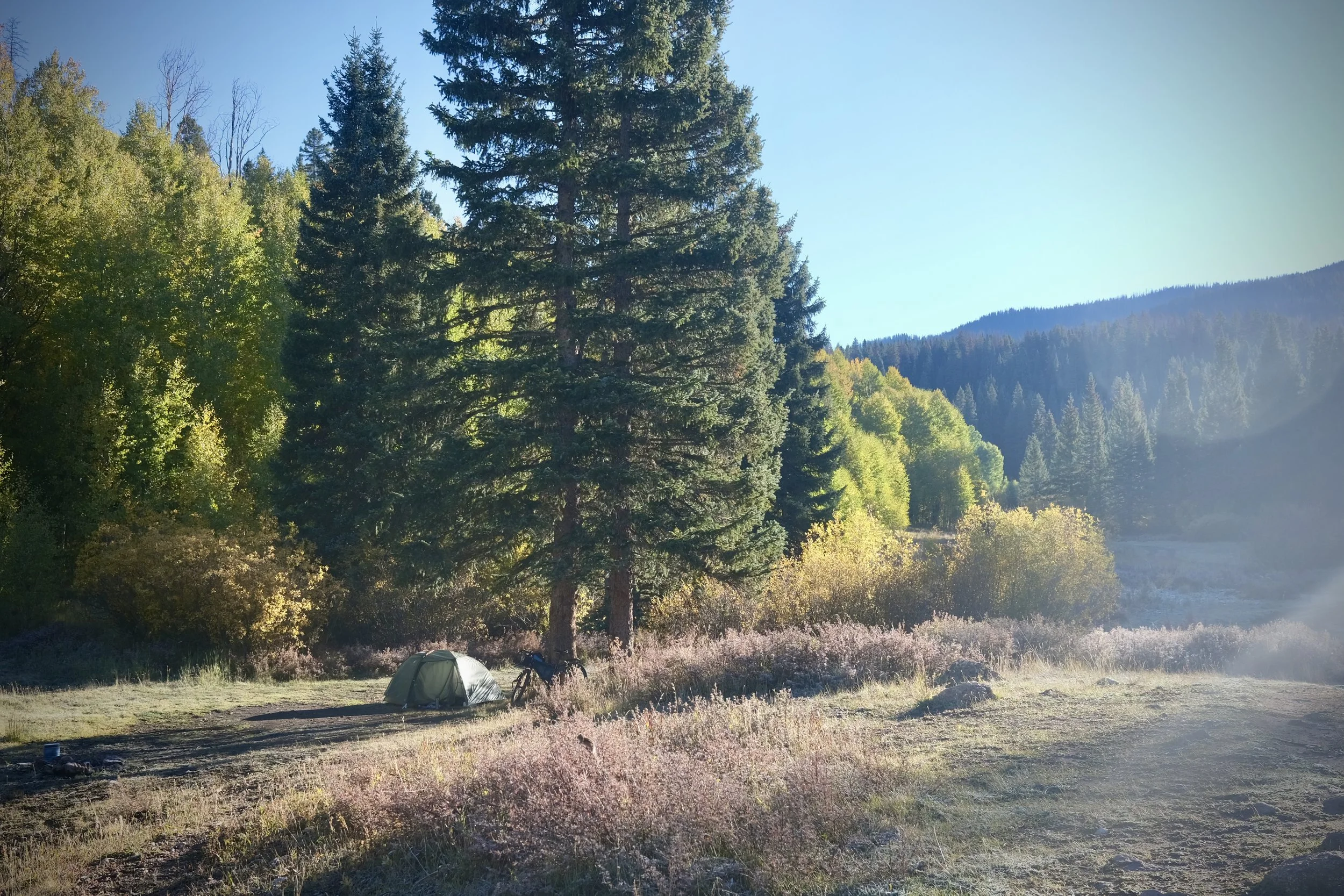Nature is the Source of our Humanity
I’m in Colorado for a few weeks this fall.
This week I biked up a long, beautiful gravel road to a backcountry campsite at 10k feet. I arrived in the evening just as the light turned low and golden.
The campsite was a flat nook near a small, tree-lined lake. I was the only one there. I set up my tent under a thick pine tree and wandered towards the water. It was so quiet. No cars. No people. No cell service. No sounds except a chipmunk hopping along a rock, and the whisper of wind over water.
This quiet world entered my senses, and in one smooth, internal sigh my whole body relaxed. Instantly, I was part of the calm.
I knelt down by the lake and started filtering water into my water bottle. From my state of calm arose a familiar internal debate.
Why have I stayed so attached to human society?
Why haven’t I thrown out my phone and disappeared by now?
Why haven’t I left for good?
Like many people in the US lately, I’ve spent a lot of time doomscrolling news articles about human conflict. I’ve been reading incessantly about gun violence, politics, and culture wars. I’ve become obsessed with trad wives, christian nationalism, and authoritarian regimes. I’m gutted by the backlash against women’s rights, the fear my LGBTQ+ friends feel for simply existing, climate change denial, publicly condoned racism, and a thousand other things that seem like social regression instead of social growth.
The news, the internet, and by extension the entire thing I relate to when I relate to human society feels like a giant knot that gets bigger, tighter, and more tangled every day.
I scooped more water into my filter. Little fish scuttled across the lake bottom, and plants swayed to the water’s rhythm. The calm was therapeutic. I looked up at the forest around me. Tall pines, blue sky, a cloud dissipating into air: a moment in time that will never be replicated. A culmination of factors that will always be unknowable.
The truth is, I like people. I think we’re strange and funny. We’re born as babies and grow up into larger creatures. We cover our bodies in fabrics, paint our faces, and live in boxes. We invented chatbots that tell us we’re special. We created over 10,000 different religions to explain ourselves. We’re bizarre, fragile, animals who pretend we’re not animals. If nothing else: we’re very interesting.
That night I cooked dinner on a rock, scanned the hillsides for bears, and crawled into my tent to sleep. In the morning I woke up to a world frozen with frost. I unzipped my tent door and wandered outside. The grass around the lake glittered silver, like a mass of jumbled spiderwebs. It was the same place I’d seen the night before, but totally different.
Nature is a wild mystery; I’ve also come to experience it as a complex, emotional, and benevolent energy. People are iterations of this same energy. I don’t know what will become of us, but I deeply believe we mean well.
This doesn’t undo the tangled knot of human society, but it does help loosen the knot in my own chest when I consider it. It does help return me to a state of hopefulness. It does help me stay curious about the puzzle of this moment in time.





